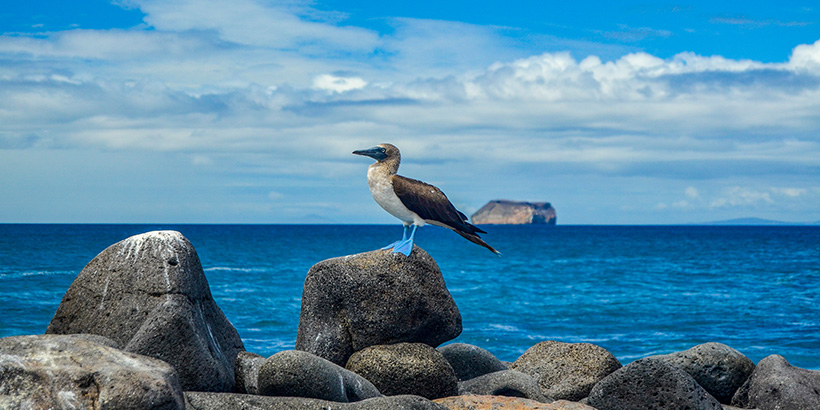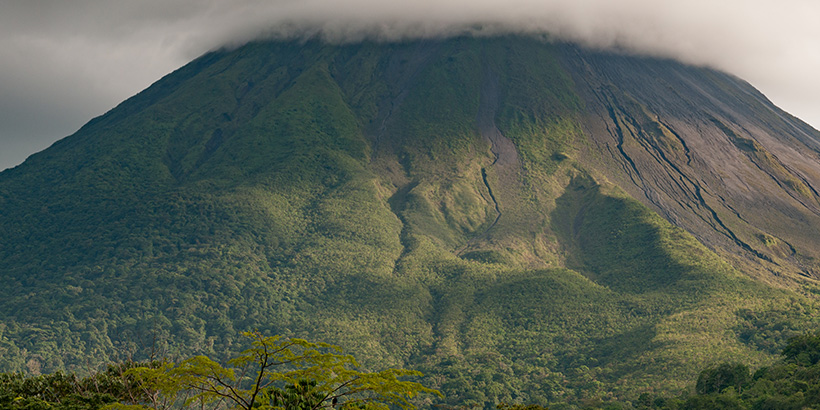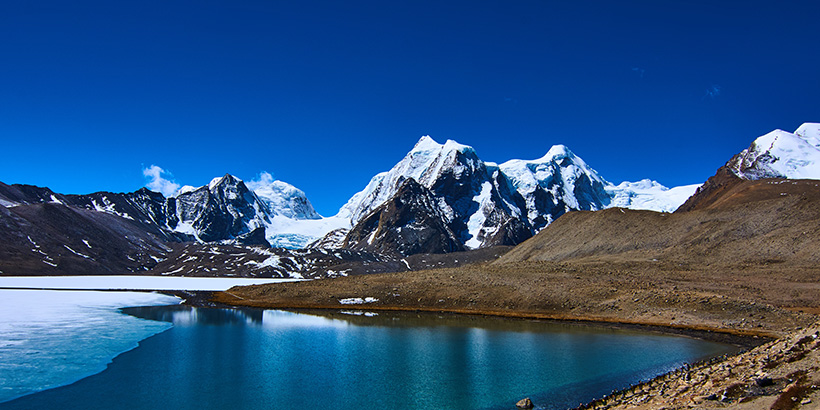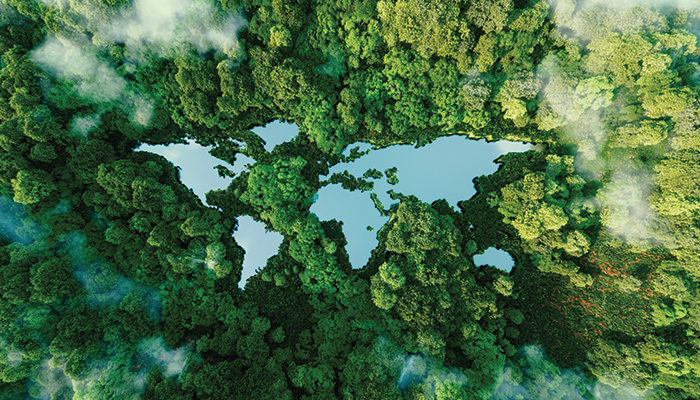Eco-tourism: The Future of Sustainability in Travel Industry
Read on to know all about Eco-tourism and tips on how to become an effective eco-tourist.
In an era where the conservation of our planet's natural resources has become paramount, eco-tourism has emerged as a powerful movement that blends travel and sustainability. The allure of pristine landscapes, biodiversity, and authentic cultural experiences has captivated the hearts of travellers worldwide, making eco-tourism destinations increasingly popular. This phenomenon is not only driven by the desire to explore untouched natural wonders but also by a growing awareness of the urgent need to protect and preserve our fragile ecosystems. Let's talk about eco-tourism in detail.
Why is eco-tourism gaining popularity?
The answer lies in the profound shift in travellers’ mind-set, as more people seek meaningful experiences that align with their environmental values. Unlike traditional mass tourism, which often imposes detrimental effects on local communities and ecosystems, eco-tourism embraces responsible travel practices. It fosters sustainable development by minimising the negative impacts of tourism and promoting the conservation of natural resources. Travellers are now embracing the opportunity to support local economies, engage in educational experiences, and contribute to the preservation of the environment, all while satisfying their wanderlust.

How does a destination qualify for eco-tourism?
For a location to qualify as an eco-tourism destination, it must meet rigorous criteria. First and foremost, the site must possess exceptional natural beauty and ecological significance, characterised by well-preserved landscapes, rich biodiversity, and unique ecosystems. Additionally, eco-tourism destinations prioritise community involvement and sustainable practices, ensuring that local community is an active participant in tourism activities and derive economic benefits from them. Environmental conservation is at the core of these destinations, with strict regulations in place to protect fragile ecosystems and minimise carbon footprints.

Tips to an Effective Eco-traveller
If you’re looking for some tips to become an effective eco-traveller, here are a few things you must always keep in mind: Firstly, it is essential to do thorough research on the destination before embarking on the journey. Understanding the local culture, environment, and conservation efforts will enable travellers to make informed decisions and engage responsibly. Minimising waste, conserving water and energy, and respecting wildlife and local communities are fundamental principles of eco-tourism. Choosing eco-friendly accommodations, supporting local businesses, and opting for sustainable transportation options are also crucial steps in reducing environmental impact and promoting sustainable practices.

Eco-tourism Destinations Across the Globe
Eco-tourism destinations can be found across the world, each offering unique experiences and conservation efforts. Here are some examples:

- Costa Rica: Known for its commitment to environmental preservation, Costa Rica is a leading eco-tourism destination. Visitors can explore its lush rainforests, encounter diverse wildlife, and engage in sustainable activities such as zip-lining, hiking, and turtle conservation projects.
- Norway: With its breath-taking fjords, pristine wilderness, and commitment to sustainable practices, Norway is an ideal eco-tourism destination. Travellers can enjoy activities like hiking, whale watching, and even stay in eco-lodges and traditional Sami tents while experiencing the country's stunning natural beauty.
- New Zealand: Renowned for its dramatic landscapes, New Zealand offers a wealth of eco-tourism opportunities. From exploring national parks and hiking trails to engaging in Maori cultural experiences, travellers can immerse themselves in the country's unique biodiversity and conservation efforts.
- Galapagos Islands, Ecuador: The Galapagos Islands are a UNESCO World Heritage Site and a haven for wildlife enthusiasts. With strict regulations in place to protect its delicate ecosystems, visitors can witness iconic species such as the Galapagos tortoise and blue-footed booby while supporting conservation initiatives.
- Borneo, Malaysia: Borneo is known for its lush rainforests and incredible biodiversity, including endangered orangutans. Eco-tourists can embark on wildlife safaris, visit orangutan sanctuaries, and learn about local conservation efforts aimed at preserving the island's unique flora and fauna.

India’s Contribution to Eco-tourism
India, with its vast and diverse landscapes, is a frontrunner in the realm of eco-tourism. From the breath-taking Himalayan foothills to the stunning Western Ghats, the country boasts numerous destinations that embrace the principles of sustainable travel. Wildlife sanctuaries such as Ranthambore and Kaziranga offer thrilling opportunities to witness endangered species in their natural habitats while actively participating in conservation efforts. Additionally, places like Sikkim and Kerala have implemented innovative eco-tourism models that promote community-based initiatives, enabling travellers to immerse themselves in local culture and contribute directly to the well-being of the communities.

How to be Eco-traveller in a Biodiverse Location?
When venturing into biodiverse locations, travellers should exercise caution and mindfulness. Respecting the delicate balance of these ecosystems is paramount. Following designated trails, refraining from littering & vandalism, and refraining from touching or disturbing wildlife are crucial practices. It is essential to be aware of local regulations and guidelines, as well as to seek guidance from experienced guides who can educate visitors about the importance of conservation. Remember, the goal is to leave these locations untouched and preserved for future generations to enjoy.
The Future of Eco-tourism
The future of eco-tourism looks promising, with increasing global awareness and initiatives that prioritise sustainable practices. Travelers are becoming more conscious of their choices and demanding environmentally friendly options. Governments and organisations are collaborating to establish stricter regulations and certifications, ensuring that eco-tourism remains an authentic and impactful movement. As technology advances, eco-tourism can leverage innovative solutions such as renewable energy, smart transportation systems, and digital platforms that connect travellers with sustainable experiences.

Eco-tourism represents a transformative approach to travel that places environmental conservation and community involvement at the forefront. The increasing popularity of eco-tourism can be attributed to the growing awareness of our responsibility to protect and preserve our planet's natural wonders. With a focus on sustainability, responsible practices, and cultural immersion, eco-travellers have the power to create a positive impact on both the environment and the communities they visit. As we navigate the future, the continued growth of eco-tourism promises a world where travel and conservation go hand in hand, fostering a harmonious relationship between humanity and the natural world.
Brightsun Travel promotes eco-tourism and sustainable tourist practices as one of our core values. Reach out to us or call one of our specialists for packages to eco-tourism destinations.






